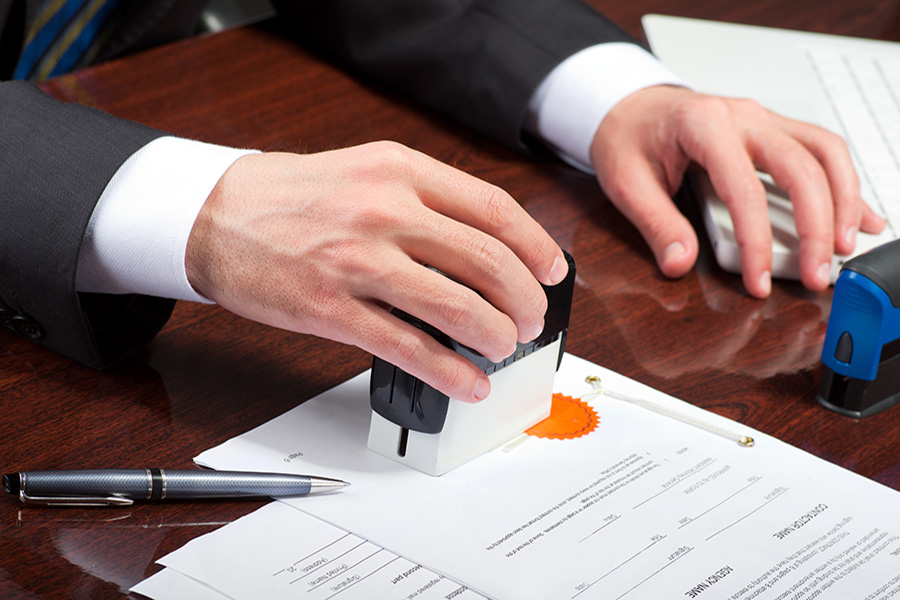A home-based mobile notary business sits in that sweet spot of low startup cost and steady demand. Notaries verify identities, witness signatures, and help prevent fraud. Because people need those services where they are—at homes, offices, hospitals, senior communities, even coffee shops—“mobile” is a convenience people happily pay for. With a reliable car, a few inexpensive supplies, and a solid understanding of your state’s rules, you can turn professionalism and punctuality into dependable income.
Getting commissioned (the foundation)
Every state sets its own rules, but the path is straightforward. Confirm eligibility—most states require you to be 18 or older, a resident or lawful U.S. resident, and free of disqualifying convictions. Many states require a short training course or exam; even if yours doesn’t, take one. You’ll learn when to refuse a notarization, how to identify signers properly, what a complete certificate looks like, and how to keep a compliant journal. Submit the state application with the fee, pass any required background check, and, where required, file a surety bond. When approved, you’ll receive a commission certificate that specifies your term and the exact name and signature you must use.
Before you perform your first act, purchase the essentials: a notary stamp that matches your commission, a hard-bound journal for recording every act, and government-issued ID guides or reference cards so you can evaluate identification consistently. Many notaries also purchase errors and omissions (E&O) insurance; it protects you from the cost of honest mistakes and signals professionalism to clients. Take a moment to understand your state’s prohibited acts, fee caps, and whether you must keep a journal—even if not required, keeping one is a best practice.
Building a mobile service that runs smoothly
“Mobile” simply means you bring the service to the signer. Define your coverage area by ZIP code and set clear travel fees so there are no surprises. A flat “service call” fee plus the state-allowed per-signature notarization fee keeps pricing simple; adjust for after-hours calls, parking challenges, or rush requests. Accept card payments on site with a mobile reader, and follow up immediately with a digital receipt.
adjust for after-hours calls, parking challenges, or rush requests. Accept card payments on site with a mobile reader, and follow up immediately with a digital receipt.
Create a frictionless booking process. A one-page website with a “Request a Mobile Notary” form works well, as does a simple scheduling tool that shows your availability. Confirm every appointment by text or email with the date, time, address, parking instructions, required IDs, and a reminder that all signers must be present and aware of what they’re signing. Bring clipboards, blue and black pens, spare reading glasses, flag tabs, and a portable phone charger. Many mobile notaries keep a small laser printer and scanner in the car for last-minute document fixes, but you can start without them.
Understanding your market
Your first clients will come from everyday needs: power-of-attorney documents, estate and healthcare directives, school forms, affidavits, vehicle transfers, and business paperwork. Hospitals, nursing homes, and senior communities frequently need patient or resident notarizations on short notice; build relationships with administrators and social workers and become the reliable, on-call option. Apartment managers and HR departments often need I-9 verifications (note: an I-9 isn’t a notarial act, but many employers prefer a commissioned notary to serve as their authorized representative). Immigration and travel periods bring a stream of consent forms, passport applications, and parental travel letters.
As you gain confidence, you can pursue higher-value niches. Real estate and loan documents generate more revenue but require extra training and a stronger understanding of procedures. Many states and lenders expect loan-signing agents to complete specialized training, pass an annual background check, and carry higher E&O coverage. If that interests you, pursue certification before you market those services.
Marketing without being pushy
Think like a local service provider. Claim your Google Business Profile, add photos of your setup, and list your hours, coverage area, and fees. Encourage every happy client to leave a review—five to ten strong reviews can kick-start steady inbound calls. Add yourself to reputable online notary directories and local business listings. Introduce your service to law firms, estate planners, CPA offices, title/escrow companies, bail bond agencies, hospitals, hospice coordinators, and property managers. A one-page flyer and a courteous drop-in visit can open doors, especially when you emphasize rapid response and accurate work.
Your website does not need to be elaborate. A home page that explains what you do, an About page with your commission details and background, a Pricing & Areas Served page, and a simple contact/booking page is enough. Blog posts help search engines find you and give clients confidence: “What to Bring to a Notarization,” “Can I Notarize for a Family Member?” and “Mobile Notary for Hospitals and Senior Communities” are perennial traffic magnets. Share new posts on LinkedIn and neighborhood groups so locals know you exist.
Professionalism, compliance, and recordkeeping
Accuracy and neutrality are your brand. Always identify signers properly, ensure they are willing and aware, and complete the certificate fully—no blanks, no shortcuts. Record every act in your journal with the date, time, location, document type, fee, and thumbprint if your state requires it. Refuse a notarization if a signer lacks valid ID, appears confused or coerced, or asks you to certify facts you cannot verify. If a document seems incomplete, ask the signer to correct it; notaries are not legal advisors, and you should never choose certificate wording for a customer unless state law expressly permits it.
Keep your stamp and journal secure. If your commission address is your home, consider a locking file box and a separate business phone line or number. Track mileage, parking, and supply receipts for tax time, and consult a tax professional about deductions relevant to mobile service providers. Many notaries operate as sole proprietors; others form an LLC for liability separation—choose the structure that fits your risk tolerance and state rules.
Remote and electronic notarization
Some states authorize electronic notarization (e-notary) and remote online notarization (RON), where the notarization occurs over an approved audio-video platform with identity proofing and electronic journals. If your state allows it and demand exists, RON can extend your hours and eliminate driving. It does require platform fees, additional procedures, and in some places a separate registration. Learn the rules before you advertise remote services, and be clear about technology requirements for signers.
Startup costs and realistic earnings
You can open your doors for very little: a stamp, journal, basic supplies, and application fees often total only a few hundred dollars. E&O insurance adds modest monthly cost, and a professional website can be built inexpensively with a simple template. Ongoing expenses include fuel, parking, paper/ink if you print, and the occasional background check or training renewal. Revenue varies with location and availability, but mobile convenience fees add up quickly. Many notaries schedule several small appointments per day and layer in higher-value assignments on evenings and weekends. The goal is consistency: answer the phone, arrive on time, and provide clear instructions—those habits generate repeat clients and referrals.
Bringing it together
A mobile notary business rewards reliability more than flash. Get commissioned properly, learn your state’s rules, and invest in the few tools that make you fast and accurate. Build simple systems for booking, confirmations, and payments so clients feel cared for from first contact to final stamp. Introduce yourself to the institutions that need you most and use your website and blog to answer common questions before people ask them. Whether you run it as a side gig or scale into loan signings and corporate accounts, the formula is the same: convenience, compliance, and calm professionalism. In a world full of paperwork and tight timelines, being the person who shows up prepared—and on time—never goes out of style.
